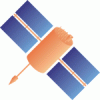- Timestamp:
- Dec 1, 2015, 3:53:14 PM (10 years ago)
- File:
-
- 1 edited
-
trunk/BNC/src/bnchelp.html (modified) (1 diff)
Legend:
- Unmodified
- Added
- Removed
-
trunk/BNC/src/bnchelp.html
r7594 r7595 879 879 880 880 <p> 881 To cope with an increasing number of transmitting GNSS reference stations, the Federal Agency for Cartography and Geodesy (BKG) together with the Informatik Centrum Dortmund (ICD) in Germany developed a streaming protocol for GNSS data called 'Networked Transport of RTCM via Internet Protocol' (Ntrip). The protocol was buil don top of the HTTP standard and included the provision of meta data describing the stream contents. Any stream could now been transmitted world-wide over just one IP port (HTTP port 80). Stream availability and content details became part of the transport protocol. The concept was first published in 2003 (see Weber et al. 2003) and based on three software components, namely an NtripServer pushing data from a reference station to an NtripCaster and an NtripClient pulling them from there in support of a rover receiver. (Note that from a socket-programmers perspective NtripServer and NtripClient both act as clients; only the NtripCaster operates as a server.) Ntrip could essentially benefit from Internet Radio developments. It was the ICECAST mulitmedia server which provided the bases for BKG's 'Professional Ntrip Broadcaster' with software published of course again as Open Source under GPL.881 To cope with an increasing number of transmitting GNSS reference stations, the Federal Agency for Cartography and Geodesy (BKG) together with the Informatik Centrum Dortmund (ICD) in Germany developed a streaming protocol for GNSS data called 'Networked Transport of RTCM via Internet Protocol' (Ntrip). The protocol was built on top of the HTTP standard and included the provision of meta data describing the stream contents. Any stream could now been transmitted world-wide over just one IP port (HTTP port 80). Stream availability and content details became part of the transport protocol. The concept was first published in 2003 (see Weber et al. 2003) and based on three software components, namely an NtripServer pushing data from a reference station to an NtripCaster and an NtripClient pulling them from there in support of a rover receiver. (Note that from a socket-programmers perspective NtripServer and NtripClient both act as clients; only the NtripCaster operates as a server.) Ntrip could essentially benefit from Internet Radio developments. It was the ICECAST mulitmedia server which provided the bases for BKG's 'Professional Ntrip Broadcaster' with software published of course again as Open Source under GPL. 882 882 </p> 883 883
Note:
See TracChangeset
for help on using the changeset viewer.
